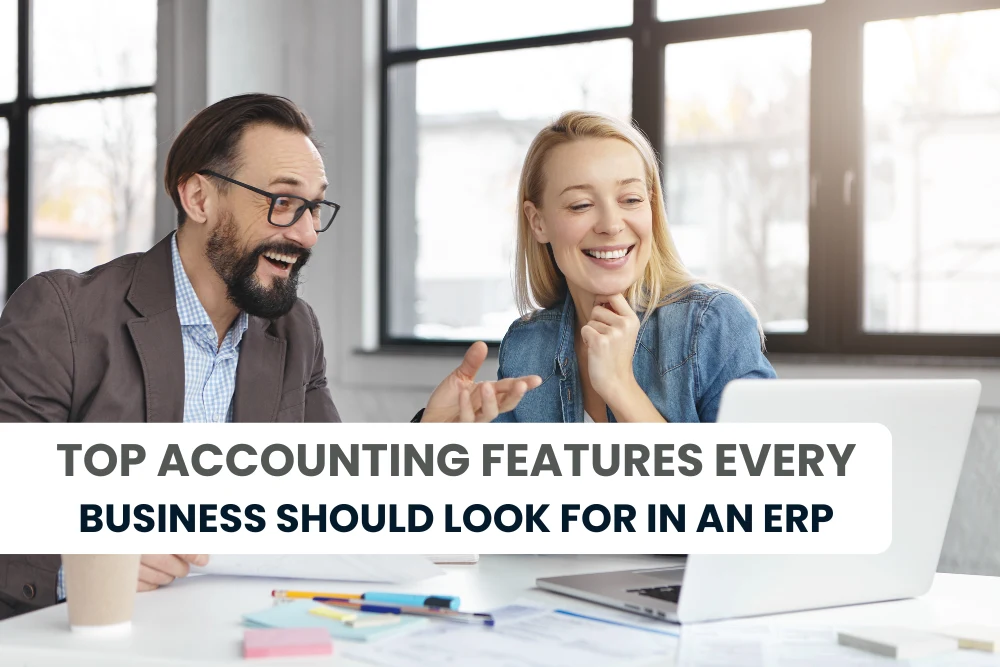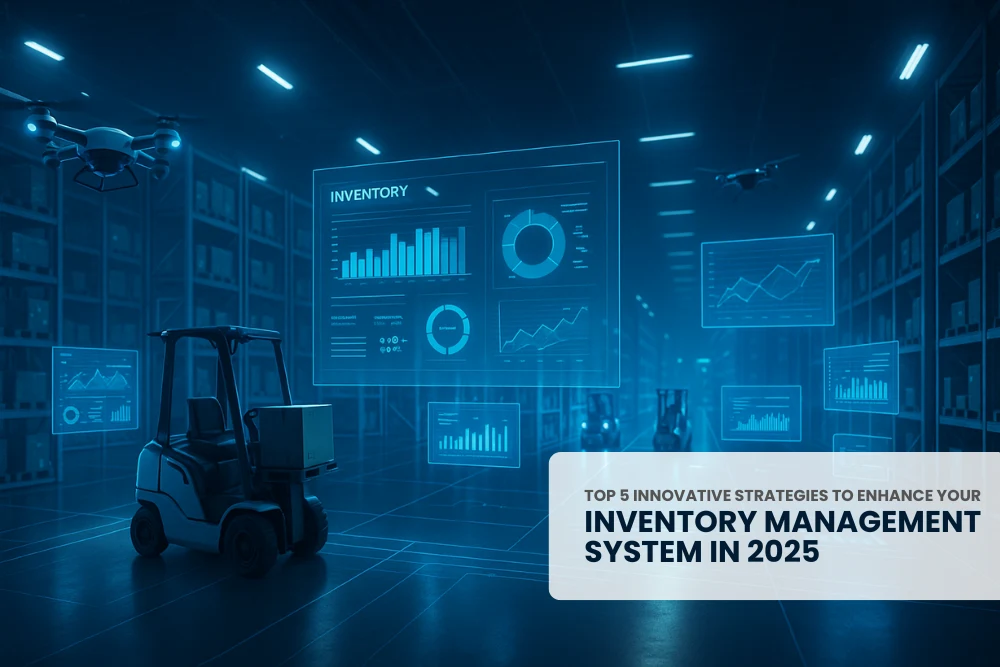Top Accounting Features Every Business Should Look for in an ERP
Oct 22, 2025

As companies scale and diversify, the complexity of managing finances can often feel like navigating through a maze. At the heart of these powerful tools lies a robust accounting module that transforms how you handle finances. With the right ERP accounting software, businesses can automate tedious tasks and gain real-time insights into their financial health.
Imagine having a digital assistant that not only keeps track of your income and expenses but also helps ensure compliance with tax regulations while integrating effortlessly with other critical functions like inventory and sales. This isn’t just wishful thinking; it’s what an effective financial management system can do for you.
As companies scale, the need for efficiency becomes paramount, making an intelligent choice in ERP more crucial than ever. Let’s dive deeper into essential accounting features every business should seek in an ERP system to enhance decision-making and operational efficiency.
Key accounting features to look for in an ERP:
1. Automation of financial processes
Automation of financial processes is a game changer for businesses. It reduces the manual workload on accounting teams and helps eliminate human error. When invoices are generated automatically, payments processed with minimal input, and reconciliations performed seamlessly, your team can focus on strategic tasks.
From tracking expenses to managing payroll, everything happens in real-time. This efficiency translates into faster decision-making. Moreover, automated workflows enhance accuracy. By setting predefined rules for transactions and approvals, companies minimize discrepancies that can lead to costly mistakes.
As a result, businesses gain better control over their finances while improving productivity across departments. With time saved through automation, organizations can redirect resources toward growth initiatives, ultimately driving profitability forward.
2. Automated Invoicing and Billing
With automated processes, invoices can be generated instantly. You set up your recurring billing schedules and let the system do its job. Customers receive their bills promptly, improving cash flow and customer satisfaction.
Moreover, these systems often provide customizable templates that align with your branding. This allows you to maintain professionalism while saving time on administration tasks.
3. Tax Compliance and VAT Automation
Tax compliance and filing are critical components of a robust ERP accounting software. A reliable financial management system should simplify the often complex landscape of taxation. With built-in VAT automation features, the accounting module in ERP simplifies calculations and reporting. You no longer have to worry about manual entries that could lead to errors or fines.
Automated systems generate accurate tax reports on demand, ensuring you meet deadlines effortlessly. This feature not only saves time but also reduces stress during audit seasons.
Furthermore, seamless integration with your financial management system ensures that all transactions are compliant from the start. With clear visibility into tax obligations, businesses can plan better and allocate resources efficiently.

4. Bank Reconciliation and Payment Management
Bank reconciliation is a crucial process for ensuring that your financial records align with bank statements. When using ERP accounting software, this task becomes seamless. Automated tools facilitate the matching of transactions, reducing errors and saving time.
Payment management also plays a pivotal role in maintaining cash flow. With an effective accounting module in ERP, businesses can monitor pending invoices and track overdue payments effortlessly. Real-time insights into cash positions allow companies to make informed decisions quickly.
Integrating these features not only enhances accuracy but also ensures timely payments to suppliers and vendors. In turn, this fosters stronger relationships with partners while promoting overall financial health within the organization.
5. Integration with other modules (such as inventory and sales)
Seamless integration between accounting and other modules like inventory and sales is crucial for a robust ERP system. When these departments communicate effectively, businesses can achieve greater efficiency.
Imagine a scenario where your sales data automatically updates your financial records. This eliminates the need for manual entries, reducing errors significantly. It streamlines workflows and accelerates decision-making processes.
Moreover, real-time visibility into inventory levels impacts cash flow management directly. An integrated approach allows businesses to adjust purchasing strategies based on current stock levels and sales forecasts, ensuring that resources are allocated efficiently.
6. Customizable chart of accounts
A customizable chart of accounts is a vital feature in ERP accounting software. It allows businesses to tailor their financial reporting to match specific needs and objectives.
Every organization has unique operations that require distinct classifications for income, expenses, assets, and liabilities. A flexible chart enables companies to add or modify account categories easily as they grow or change direction.
This adaptability ensures that stakeholders can access relevant data without sifting through unnecessary information. By providing clarity and precision in financial tracking, it enhances decision-making capabilities across the board.
Ultimately, having this level of customization fosters better alignment between financial management systems and overall business strategies.
- 7. Role-based access control
Role-based access control (RBAC) is a critical feature in ERP accounting software. It ensures that sensitive financial data is only accessible to authorized personnel. This adds an essential layer of security and helps prevent unauthorized access.
With RBAC, businesses can assign different levels of permissions based on roles within the organization. For instance, accountants may have full access to financial reports, while sales staff might only view customer invoices.
This tailored approach not only protects valuable information but also streamlines workflows. Employees focus on their specific tasks without wading through unnecessary data.
How Grey ERP's accounting module meets these requirements
Grey ERP's accounting module stands out by seamlessly integrating key features that enhance financial management. Its automation of financial processes reduces manual entry, minimizing errors and saving time.
Real-time reporting is a game-changer for businesses seeking immediate insights. With dynamic dashboards, users can access crucial data at their fingertips, facilitating informed decision-making.
Tax compliance becomes effortless with Grey ERP’s built-in tax functionalities. It ensures that your business adheres to the latest regulations while simplifying filing processes.
Furthermore, integration with inventory and sales modules provides a holistic view of your operations. This interconnectedness helps in tracking profitability across various departments effortlessly.
Customizability is another critical aspect; a tailored chart of accounts allows companies to reflect their unique financial structure. Additionally, role-based access control helps maintain data integrity by allowing only authorized personnel to view sensitive information.
Choosing the correct ERP system isn't just about functionality – it’s about making informed decisions that align with your business goals. Look for solutions like Grey ERP that offer robust accounting features alongside integration options with inventory and sales modules for a holistic approach to enterprise resource planning.
Ultimately, investing time in assessing these requirements can lead to smarter choices that empower your organization toward greater efficiency and growth in today’s competitive landscape.
Get In Touch
Text us
